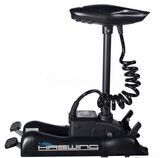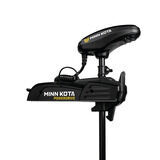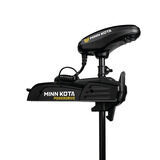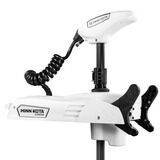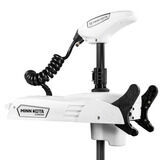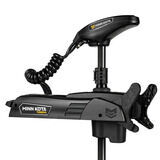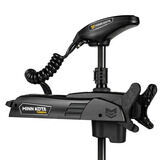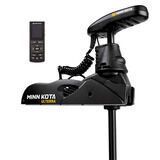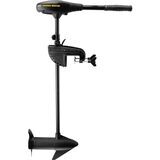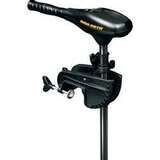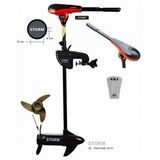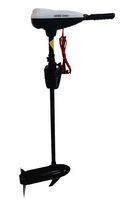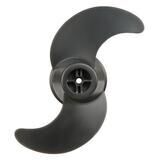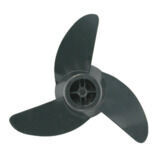What to Look For
Bow Mounted Motors
Bow mounted motors are convenient if you fish primarily in an open bow-rider or on the fore-deck of a bass boat. To prevent damage from groundings, a spring-loaded mount like Minn Kota’s BowGuard 360 allows the motor to swing away on impact. On very small craft or on a light sailboat the trolling motor often doubles as an auxiliary engine and is mounted on the transom where it is operated by a tiller.
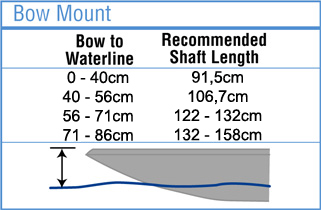
Transom-Mount Motors
Transom-mount motors feature brackets that adjust to different angles and heights so the motor’s shaft is immersed at the right depth.
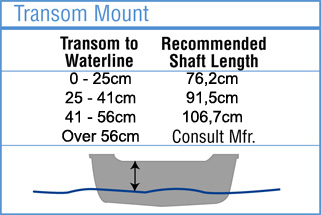
Fresh vs. Saltwater
Saltwater motors are protected against corrosion and have better seals on the mechanical and electrical components.
Shaft Length
The standard shaft length is 42" (106,7cm). To determine the right length for your boat, measure the distance from where the shaft is mounted on the deck or the transom to the water. Then add 40cm (for MotorGuide) or 51cm (for Minn Kota) and select the next closest measurement. We recommend longer shafts for operation in rough water so the prop stays about 15cm below the surface when the boat pitches and rolls. Fine-tune the motor’s vertical position with the adjustment on the mount.
Thrust
Trolling motors are rated in pounds of thrust. As a rule of thumb 32,5kg to 34kg. of thrust roughly equals one horsepower or 746W of electrical power. A typical 12V motor that draws 60A consumes approximately 720W. The equation for power is easy: the higher the voltage, the higher the thrust. Trolling motors are offered in 12V, 12/24V, 24V and 36V versions, with the most powerful ones offering more than 45kg. of thrust, powerful enough to move heavy vessels such as pontoon boats. Maximum thrusts at different voltages are approximately 12V/25kg. and 24V/36kg.
The Right Size
Bigger is almost always better. Larger boats need more juice, but we recommend you consider wave action, wind and current when choosing a trolling motor. Erring on the stronger side has its benefits because stronger motors run more efficiently at lower speeds and provide a safety cushion for handling wind, waves and current. We recommend 2,3kg. of thrust for every 99kg of a vessel’s gross weight.

Power Consumption
Think about the size of your boat, how much battery capacity you can safely install to satisfy the energy demands of a trolling motor, and whether or not you will be able to charge the batteries when underway. Check the amp draw of the models you have in mind. A 24V model with 24,5kg. of thrust may only draw 28A, while a 12V model with 20kg. of thrust can draw 36A. The rule of thumb is that larger motors require more battery capacity, and if you fish from dawn to dark with a boat of 4,8m or longer, you’ll probably want 24V. Serious anglers who spend a lot of time on the water will appreciate a 36V motor.
